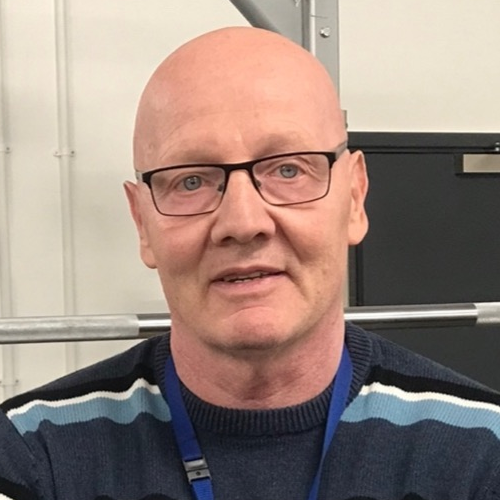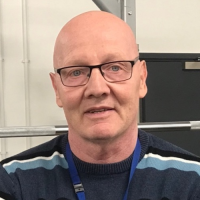About us: our vision
Physical activity is an essential component in our society. The Centre for Exercise, Activity and Rehabilitation (CEAR) draws on interdisciplinary expertise to generate scientifically robust evidence on the benefits of physical activity, sport, and other rehabilitation strategies, and to develop interventions that support people’s health and well-being across the lifecourse.
We aim to:
- Deliver research and practice which promotes lifestyles with regular physical activity, encourages healthy eating patterns, and supports education and rehabilitation through body movement.
- Support the development of researchers and professional practitioners in this area at every stage of their career.
- Build our research and practice network through the development of meaningful and supportive partnerships with external public, private and non-profit organisations promoting the benefits of exercise, physical activity, sport and rehabilitation.
- Ensure the findings from our research and knowledge exchange activities are published and accessible to all.
Our impact on the world
The evidence is clear: performing physical activity regularly delivers a host of physical, psychological and social benefits, regardless of our age or background. The health benefits alone include a reduced risk of coronary heart disease, stroke, type 2 diabetes and cancer, as well as improved mental health. Yet we are failing to exercise enough, with many UK adults spending more than seven hours a day sitting down, at work, on transport or in their leisure time. Inactivity among children also rising, sometimes leading to obesity and even a failure to learn fundamental movement skills. The reasons are complex, ranging from low levels of education and awareness, to the boom in digital technologies, as well as cultural or psychological factors.
The research undertaken at the Centre for Exercise, Activity and Rehabilitation is designed to directly address these challenges. We do this by providing professional practitioners in the UK and around the world with evidence-based tools and techniques to achieve beneficial outcomes. These interventions are tailored for specific groups, be they children, youth, adults and the elderly, athletes, workers, or patients waiting for surgery or recovering from different pathologies. We also produce research to addressing global public health issues more broadly.
CEAR’s work directly contributes to the many of the UN Sustainable Development Goals (SDGs). Examples include:
- Our design of an exercise programme using resistance exercises to improve effectiveness of medication for patients with cancer and type 2 diabetes, which supports Good Health and Well-being (SDG3), as does our research on the changing burden of disease attributable to low levels of physical activity in South Africa.
- Research on the use of exercise activity as a formative tool to support the education process, which supports Quality Education (SDG4).
- Our award-winning work with sports and health companies to develop and commercialize science-based nutrition products, and injury reduction and recovery protocols, which supports Industry, Innovation and Infrastructure (SDG9).
Who we are
An interdisciplinary approach
The Centre for Exercise, Activity and Rehabilitation brings together world-leading researchers from a variety of professional and academic backgrounds, all of whom as are passionate about the benefits of physical activity. Our members include sport scientists, clinicians, physiotherapists, psychologists, sociologists, educators, nutritionists, physiologists and experts in biomechanics. This interdisciplinary approach ensures that our research outputs are tailored to different types of users for maximum beneficial impact.
Partners
We work closely with many external organisations to promote health and wellbeing among different target groups, such as children, the elderly, athletes, frontline workers or patients. Our agreement with Kent and Medway NHS and Social Care Partnership Trust, in which postgraduate students from the University of Greenwich integrate with multidisciplinary teams of physicians, nurses, physiotherapists, is typical of the depth of our collaborative working. Other high-profile partners in the UK and overseas include Charlton Athletic Football Club, the London Metropolitan Police, King’s College Hospital NHS Foundation Trust, QuestPrehab and the European University of Madrid. We also collaborate with world-leading companies in the fitness, sports and health industry, such as GO-Fit Lab and Crown Sport Nutrition.
Funding
The work of the Centre for Exercise, Activity and Rehabilitation is supported by the UK Medical Research Council, the NHS and the European Union, among others. We also carry out consultancies for a range of external partners, such as Crown Sport Nutrition
Our research
A needs-based approach to research
All research conducted by CEAR members is closely guided by the requirements of the individuals, groups and societies it is intended to benefit. When designing new projects, we first explore the specific need, then develop new solutions and identify external partners with whom to work.
Our research falls broadly under the following interlinked themes:
- Well-being supported by activity
- Exercise science and rehabilitation
- Ergonomics
- Social impacts
- Nutrition
- Optimisation of exercise performance
- Assessment of physical function
Well-being supported by activity
This strand of work explores the ways that well-being can be supported by physical and therapeutic activities. Examples of research in this area include helping patients to engage in physical activity programmes to reduce the effects of cancer.
Exercise science and rehabilitation
Here, we produce research and interventions designed to tackle the impacts of sedentary lifestyles. For example, we are currently investigating the effects of microcurrent and resistance exercises on sarcopenia, a major health problem linked to disability, poor quality of life, and increased risk of death, in older adults.
Ergonomics
Ergonomics is about ensuring that tasks, equipment, information and the environment are suited to individual workers to reduce health risks, including skeletal and neural injuries. Our activities in this area encompass the provision of ergonomics assessments and interventions to the London Metropolitan Police, and others,
Social impacts
This theme examines the socials benefits of participation in health, fitness and sport, and includes work on ways to encourage behaviour change and engagement in such activities.
Nutrition
A key strand of work explores the role of nutrition for sport and health. This involves close cooperation with other faculties at the University of Greenwich and with leading companies across the fitness and sports nutrition sector. Recent work includes a partnership with the Spanish company Crown Sports Nutrition to design award-winning new products, improve product performance and change product strategy.
Optimisation of exercise performance
This theme supports the optimisation of exercise performance at all levels, not only athletes! Recent work has examined the benefits of different resistance training workouts and injury prevention programs in recreational athletes.
Assessment of physical function
The assessment of physical function strand covers research across all ages in physically active individuals. Recent studies include evaluations of exercise performance in swimmers, runners and cyclers
Publications/Output
View all publications.
Teaching and training
All students doing the Master’s courses in Strength and Conditioning are automatically enrolled as members in the Centre for Exercise, Activity and Rehabilitation, with the option to work with us after completing their studies. Externally, meanwhile, the focus is on training healthcare professionals to supervise appropriate exercise programmes, designed for patients’ specific needs. We also plan a new professional development course for sports coaches to implement good rehabilitation in athletes, or retraining to regain physical capacity.
Our Master of Sciences in Strength and Conditioning (MSc P12623) is one of the best international postgraduate qualifications in sports sciences. The programme provides a foundation in all strength and conditioning subjects, including athletic preparation for different disciplines (e.g., team sports, martial arts, boxing, track and field, swimming, gymnastic, endurance, weightlifting or powerlifting, cross-fit, etc.), or as personal trainer focusing on general fitness preparation. Furthermore, unlike similar programmes in the UK, we pay particular attention to working with children, adolescents and older adults. Our programme also emphasises the relevance of strength and conditioning professionals for preventing injuries in athletes or work as a team with other professionals during rehabilitation and retraining period. Our MSc provides a blended theory and practice teaching environment allowing our students to integrate and enjoy an outstanding learning and research environment at the Centre for Exercise Activity and Rehabilitation.
News and events
CEAR runs a variety of events for our members and the wider public. These include seminars on how to do research, and invited presentations from staff and early career researchers. We hold between three and four Centre meetings annually, with keynote speeches by well-known experts. We also regularly publish a newsletter showing our activities and achievements in research and practice. Our members meanwhile attend several international seminars each year, such as the
- European Congress of Sport Science.
- The American College of Sport Medicine (ACSM) Annual Meeting
- National Strength and Conditioning (NSCA) Annual Conference
- United Kingdom Strength and Conditioning Association (UKSCA)’S Annual Conferences









